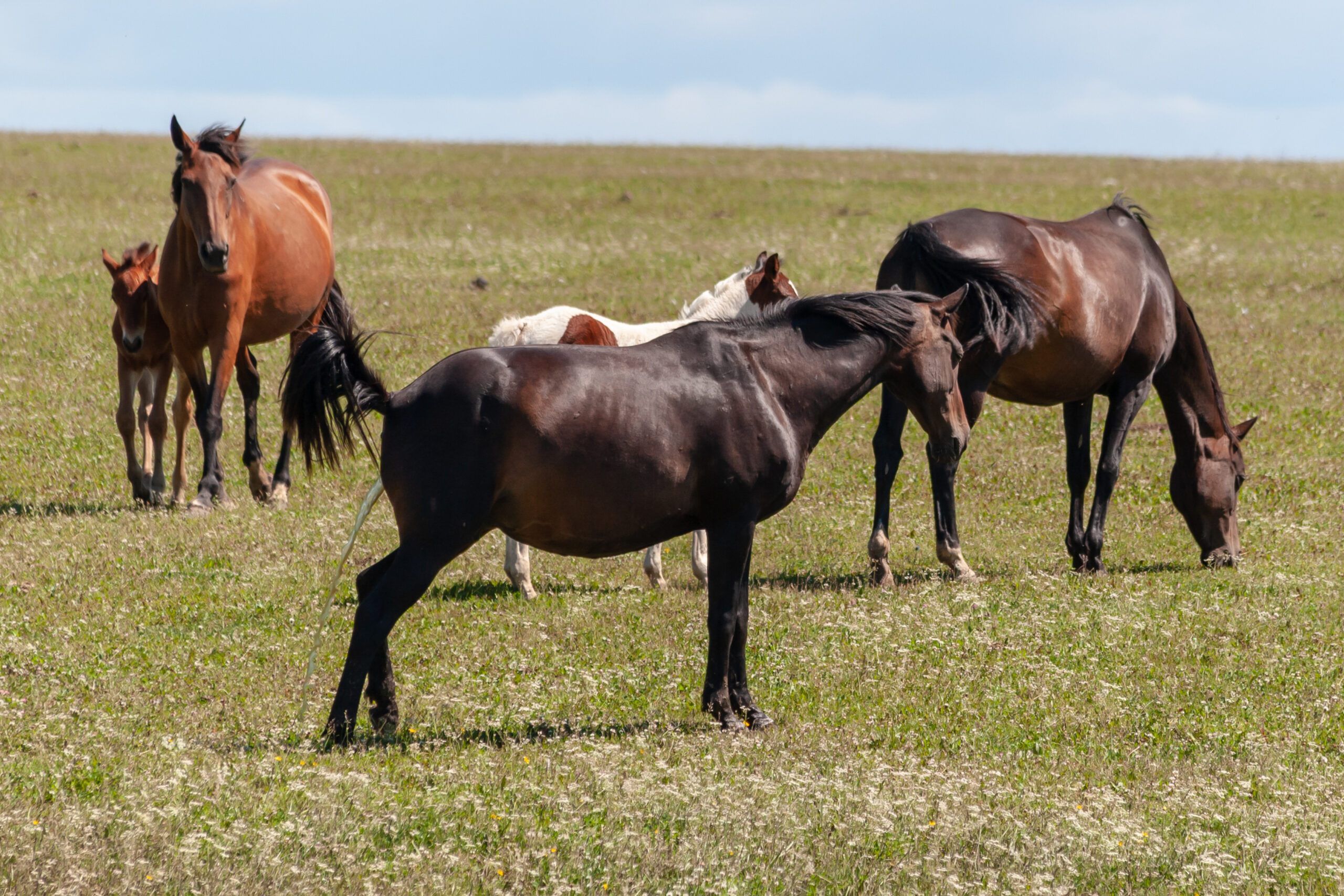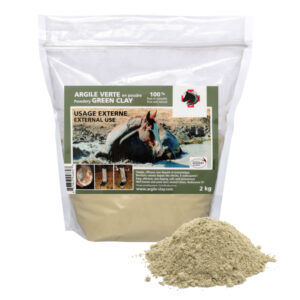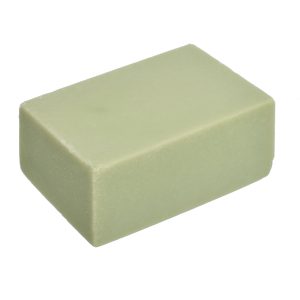Urine burning on mares' legs: understanding and preventing this all-too-common problem
In some mares, urine doesn't drain properly to the ground. Instead, it spreads over the vulva, inner thighs, or even hocks. The result: irritation, skin burns, discolored hair, and sometimes even painful sores. This is a more common problem than you might think, yet it's still too often overlooked.
Why does urine flow poorly in some mares?
Abnormal urine flow can be caused by:
1. An unfavorable vulvar conformation
- A tilted or open vulva
- Poor position of the vulva in relation to the anus
- A weakness of the vulvar sphincter
2. History of childbirth or aging
- The perineal muscles lose their tone with age
- Poorly healed tears after foaling or during natural mating (not always desired) can also modify the anatomy.
3. A postural or orthopedic problem
- A mare who adopts a poor posture when urinating (due to lower back pain, lameness or discomfort) may misdirect her stream
4. Urinary tract infections or poor genital health
- Inflammation may alter urination habits or position
5. And of course...during her heat with cycles of many possible durations, intensities and variations.
Consequences: irritation, burning, discomfort
Urine is naturally acidic. When it sits or runs off the skin, especially in summer, it can cause:
- Redness and crusting
- Hair depigmentation
- Hair loss
- Weeping or infected wounds
- Visible discomfort and pain in the mare
What can be done to help?
1. Veterinary assessment
It is important to exclude a medical cause (infection, pain, genital problem) or to confirm a conformation abnormality.
2. Local care and prevention
- Cleanse the contaminated skin with a mild solution (natural soft soap, clay soap or any other mild soap)
- Dry thoroughly as much as possible
- Apply either an external clay poultice or a protective cream (e.g. Zincofax. Avoid petroleum jelly, which will melt and can burn in the sun).
- Observe urination posture to detect a change
3. Consider reconstructive surgery if necessary
In some mares (especially breeding mares), a minor procedure called episioplasty (or Caslick) can help correct a gaping or malpositioned vulva.
In summary
Misdirected urine may seem like a minor inconvenience, but it has a real impact on the mare's comfort and health. By understanding the possible causes and implementing regular care, the quality of life of these mares can be significantly improved.



